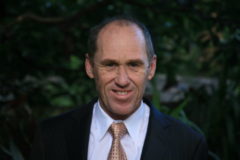 A few years ago, I was traveling in Congo and got to thinking, “What are the most peaceful countries in the world?” I really got curious about that question and started doing some research on it, but couldn’t find anything. And I thought if a business man like me can’t find the answer, then there must be a niche that can be filled. So I started the Global Peace Index as a way to easily identify and rank countries according to their peacefulness.
A few years ago, I was traveling in Congo and got to thinking, “What are the most peaceful countries in the world?” I really got curious about that question and started doing some research on it, but couldn’t find anything. And I thought if a business man like me can’t find the answer, then there must be a niche that can be filled. So I started the Global Peace Index as a way to easily identify and rank countries according to their peacefulness.
What interests you most about what you’re doing now?
Well, I think the thing which interests me the most in the work I’m doing today is that I can actually see the effect: people are starting to see that there is economic value to peace and that concepts are starting to develop. What we’re doing is breaking new ground. I get a real sense of satisfaction and positive energy from seeing work that is original actually start to get traction.
What’s been your biggest accomplishment?
I’m not even thinking that way. It’s like we’re a quarter of the way down the road. It’s hard to think of my own accomplishments because there are so many people working in this area. So when I look at changes, I can’t say, “Well, that’s what I’ve done.” What I have done is create an institute, the Institute for Economics and Peace, which has solid international recognition. The institute is viewed as credible and the work is rigorous. The real accomplishment will be getting people to understand that there is real material value in improving peace and that we don’t actually know so much about peace. When people go study in a Peace and Conflict Studies program, 90% of what they’re studying is conflict. Peace is something different. It’s something we don’t know a lot about. That’s the other message I’m trying to get through. But I can’t say that it’s the work I’m doing; it’s the work of many, many people.
Biggest challenge?
The main challenge is getting the right structures and the organizational capability so that we can grow. But that’s true for any business that you’re trying to scale. Even though this is a non-profit organization and it’s non-partisan, I’m bringing in a lot of my business principles and background to play in terms of how we organize, how we go about developing products, concepts of marketing, quality of material and the organizational and reporting structures.
Who or what inspires you?
I do what I like to do. That might sound slightly selfish, but in a lot of ways, if you pick things that you want to do and are motivated to do, you generally pick things that you’ve got skills in and because you like to do it you are willing to put a lot of time and energy into it and you tend to do it well.
Why is peace sexy to you?
The attraction about peace is that if we look at the better angels resting in our souls, that is the better part of humanity. If we look at the people who have inspired humanity through out the ages, they’ve all been dedicated to peace: Buddha, Mahatma Gandhi, Jesus Christ. The ones who have inspired humanity the most are the ones who have dedicated their lives to creating a better, more peaceful world.
How would you like Peace is Sexy to make a difference in what you are up to?
It’s got a really good focus on branding, being able to get some crisp concepts of peace and trying to work out how to put them into a language that is attractive to ordinary, every day people. That’s what I like.
Where would you like to see your passion go in the next 10 years? 20 years? 100 years?
I don’t think about the future. I’m not a deep thinker. I live in the present. I believe that if you do the right thing in the present, the future takes care of itself. If you worry too much about the future, it’s a waste of mental energy. That doesn’t mean that you don’t have a strategy about what you’re doing–that’s different–but your strategies are always being revised, they’re always changing. It’s a bit different if you’ve got a business with a few billion dollars of turnover, but peace is embryonic, it’s developing, so if you get too focused on the future, you miss opportunities in the short term.

